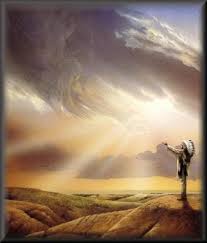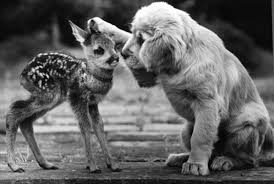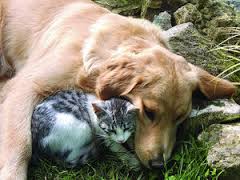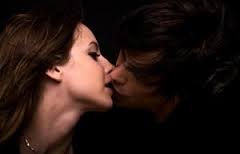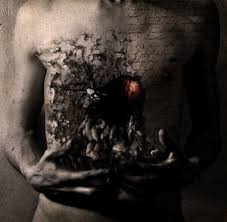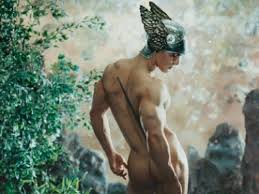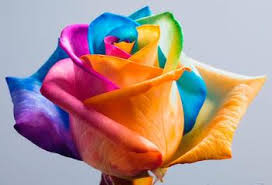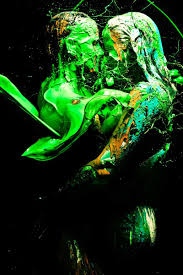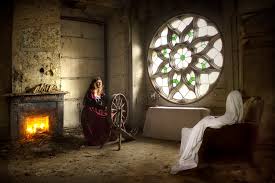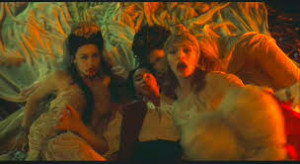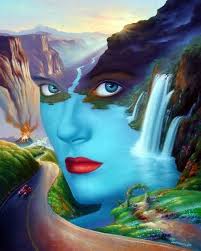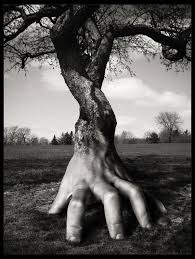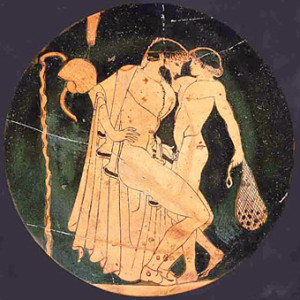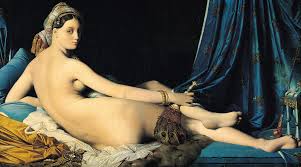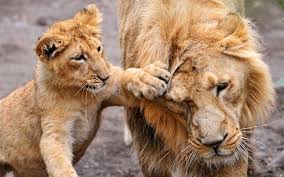We provide ourselves with a pattern or model of nature that conforms with our beliefs.

Love and devotion are largely seen as female characteristics. Societies and organizations of church and state are seen as male. It is not so much that the male and the female be considered equal as it is that the male and female elements in each person should be released and expressed. Immediately, many of us may be annoyed or alarmed, thinking that of course I mean sexual expression. Of course, sexual expression can come in a lot of ways – self (with toys like a thrusting dildo or vibrators) and with another human. That is a portion of such expression. But I am speaking of releasing within each individual the great human characteristics and abilities that are often denied expression because they are assigned to the opposite sex.

In our present framework, because of the male-female specialization– the male orientation, the implication that the ego is male while the psyche is female– we force upon ourselves great divisions in which operationally the intellect seems separate from the Intuitions, and we set up a situation in which opposites seem to apply where there are none. When we think of a scientist, the majority of us will think of a male, an intellectual, an “objective” thinker who takes great pains not to be emotional, or to identify with the subject being examined or studied.

There seems to be a division between science and religion, for even organized religion has an intuitive basis. The male scientist is often ashamed of using his intuitions, for not only do they appear to be unscientific, but female as well. It is what others will think about his masculinity that such a man is concerned with. It be “illogical” is a scientific “crime” — not so much because it is an unscientific attribute, but because it is considered a feminine one. Science has followed the male orientation and become its epitome. Up until the present, science has consistently tried to do without the so-called feminine qualities. It has divorced knowledge from emotion, understanding from identification, and stressed sexuality over personhood.

To an extent, some people in the sciences manage to behind the so-called female and male characteristics. When they do so, seeming oppositions and male contradictions disappear. To whatever degree, more than their contemporaries, they do not allow sexual roles to blind them psychologically. Therefore they are more apt to combine reason and emotion, intuition and intellect, and in so doing invent theories that reconcile previous contradictions. They unify, expand, and create, rather than diversify.

Einstein was such a person in the sciences. While he was tainted to some extent by conventional sexual beliefs, he still felt his own personhood in such a way that he gladly took advantage of characteristics considered feminine. As a youngster particularly, he rebelled against male-oriented learning and orientation. This rebellion was was psychological — that is, he maintained an acceptable male orientation in terms of sexual activity, but he would not restrain his mind and soul with such nonsense. The world felt the result of his great intuitive abilities, and of his devotion.
Because of the world situation, and the overall male orientation of science, the result of his work were largely put to the uses of manipulation and control.

Generally, reason and intellect are then considered male qualities, and the frameworks for civilization, science, and an organized world. The intuitions and the impulses are considered erratic, untrustworthy, feminine, and the impulses are be controlled. The world exists because of spontaneous order. Civilization began because of the impulse of people to be together. It grew spontaneously and came into order. We only see the outside of many processes because our objectified viewpoint does not allow us the identification that would show us more. It seems to us then that all systems sometime break down — become less orderly or fall into chaos.

We apply this belief to physical systems and psychological ones. In terms of sex, we insist upon a picture that shows us a growth into a sexual identification into “sexual disorder.” It does not occur to us that the original premise or focus, the identification of identity with sexual nature, is “unnatural.” It is us, then, who form the entire framework from which our judgement is made. In many cases the person is truer to his or her own identity in childhood or old age, when greater individual freedom is allowed, and sexual roles are more flexible.

Any deep exploration of the self will lead into areas that will confound conventional beliefs about sexuality. We will discover an identity, a psychological and psychic identity, that is in our terms male and female, one in which those abilities of each sex are magnified, released, and expressed. They may not be so released in normal life, but we will meet the greater dimensions of our own reality, and at least in the dream state catch a glimpse of the self that transcends a one-sex orientation.
Such an encounter with the psyche is often met by great artists or writers, or by mystics. This kind of realization is necessary if we are to ever transcend the framework of seeming opposites in which our world is involved.

The overly specific sexual orientation, then, reflects a basic division in consciousness. It not only separates a man from his own intuitions and emotions to some extent, or a woman from her own intellect, but it effectively provides a civilization in which mind and heart, fact and revelation, appear completely divorced. To some degree each person is at war with the psyche, for all of an individual’s human characteristics must be denied unless they fit in with those considered normal to the sexuall identity.
